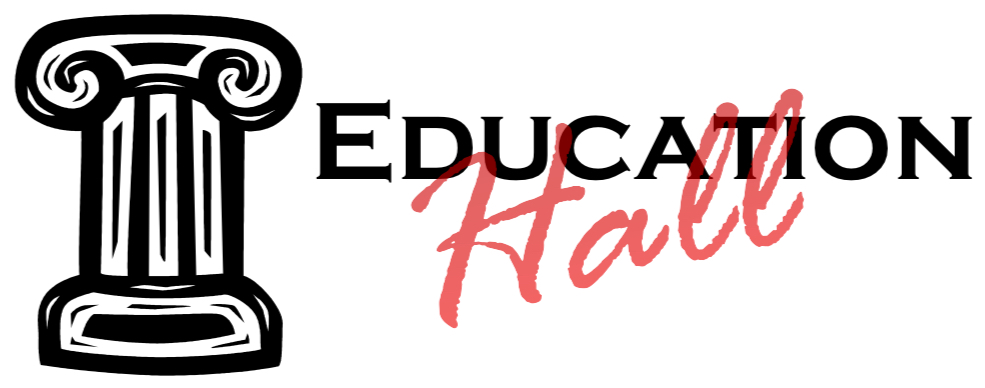By Pete Hall

Education is hard. It’s demanding. It’s high-paced. It requires a ton of emotional output, not to mention the ability to balance a dozen (or more) tasks at a time, manage hundreds of relationships all at once, make split-second decisions that have lifelong implications, meet rigorous standards with intense public scrutiny, use the eyes on the front of your head as well as the ones on the back of your head at all times, think critically, apply high-yield instructional strategies, analyze data in real-time, follow orders and make decisions simultaneously, and nurture the next generation of scientists, doctors, poets, arborists, museum curators, electricians, landscape architects, and every other profession out there.
While holding your bladder for up to 7 hours a day.
It’s no surprise, then, that I’m often asked, “With all those demands and expectations, the school year is emotionally, spiritually, physically, and psychologically draining; so, how can educators remain fresh, energetic, and positive all year long?”
There are two sides to this question.
One is the state of the profession itself, which is bearing down on becoming untenable. Are there shifts that lawmakers, education leaders, and government officials can make to help? Absolutely. Upping salaries, providing clarity of outcomes, removing unnecessary curricula and assessments, and fully funding public education would be a great start.
The other rests on the individual educator’s shoulders, which is both daunting and empowering. There are plenty of blogs and articles out there bemoaning the state of the profession and calling for legislators to put their money where their future is, so I won’t go there. Plus, most of you reading this are practicing educators anyway, so this one’s for you:
Actually, these four are for you. I’ve always prided myself on remaining full of vim and vigor all year long, and I’ve asked fellow educators how they do it, too.
Here are the four top strategies I’ve encountered for keeping yourself upbeat, energized, and fully engaged from Day One to the Last Day of School:
#1: Know your purpose. I spend a lot of time coaching people to achieve more successful outcomes, and every conversation starts with the same question: “What’s your goal?” Having clarity of the outcome – and for most of us in education, that means the impact we’ll have on others – is critical. It’s the metric by which we gauge success! When you’re clear on your purpose, what you’re aiming for, then everything you do becomes meaningful and supports your progress. Think of it this way: Have you ever dined at a restaurant and felt like your server was just going through the motions, clocking in, doing the job, and can’t wait to clock out? What about that time you went to dinner and it seemed like your server’s goal in life was to make sure you had the best dining experience ever? The work they did was the same. The tasks were the same. The words they said might have even been the same. But the spirit in which they did their work was different. Intentional. Even magical. That’s the power of knowing your purpose.
#2: Connect with your people. Who are your people, and how do you know? Well, your people are the folks that make you smile, that bring joy to your day, that you can’t wait to see, that you seek out for counsel or advice or a joke or a shoulder. Whoever these people are, seek them out every day. Engage with them somehow. When you get your uninterrupted 7-minute lunch, break bread with them! On your way to that next meeting, stop by their classroom, stick your head in, and say hi. Because we (as humans) are social beings, we must satisfy those social needs – and the more you engage with the right people, the stronger the benefit.
#3: Understand your impact. You matter. The work you do matters. We’re in the business of investments, right? We give our students our best, we teach and bond and nurture to the ends of the earth, and then we release ‘em into the wild with our fingers crossed and hearts beating fast. How will they do? We may never know the long-term effect of our efforts. However, we can monitor the short-term and immediate outcomes! Here’s a simple strategy: At the end of each day, take 2 minutes to write in an impact journal. Answer the prompts, “What impact did you have today?” “What are you proud of today?” “How is so-and-so better off because of your work today?” And in your written answers, use the word “because.” Like this: “So-and-so showed quite a bit of confidence in math today because I encouraged her to try something new, and I led the class in a little cheer. She beamed.” Later in the year, when you start to wonder about your impact, go back and re-read your journal entries. You’ll beam, too.
#4: Spend time every day doing something you’re good at, that you love, and that fulfills you. Lots of educators who become drained and jaded over the course of a school year tend to focus their attention and energy on all the things that make the job hard. The parts of their work they don’t like doing. The drudgery. Instead, look for opportunities to intentionally engage in the actions that you really enjoy, even at work. Do you thrive with fresh air on your face? Take your class on a quick break and walk through the courtyard. Are you infatuated with data and numbers? Analyze your students’ recent performance to look for learning trends. Are you happiest when you feel accomplished? Keep a to-do list and emphatically cross things off when you’re finished…and, if it helps, add things you’ve already done, just so you can cross ‘em off! Do you like making your own decisions? Find opportunities to choose for yourself, such as where to park, what questions to ask in class, where to stand during a discussion, what examples to share, how to respond to a student, when to return that phone call…the possibilities are endless, and if you can’t make big decisions, make small ones with pride! When you’re engaged in activities that give you a boost, you shine…and that boost is multiplied for others in your orbit.
The question that always accompanies this list is predictable: “How can I do these things? I’ve got so much other work-stuff to do.” My answer is also predictable: First, you’ve got to prioritize them, you can’t leave them to chance. For example, you can’t hope that you’ll bump into your favorite colleague at some point, you’ve got to seek that person out. Second, as I tried to express in #4 in particular, you’ve got to weave these actions into your daily routine. Make them part of your professional habits. If it helps, schedule them into your day, just like you would the learning objectives, activities, and assignments in your lesson plans. Once they’re scheduled, do them!
When you are strategic and intentional about it, you too can be full of vim and vigor, passionate and positive, energized and excited, delightful and ___, throughout the entire school year. You won’t count the days…you’ll make the days count!
Pete Hall is a former teacher and principal, the author of 12 books on education, and the President/CEO of EducationHall. You can reach him at PeteHall@EducationHall.com.
Stay Up To Date
Stay up to date with the latest news updates and blog posts
Share Article
Share this post with your network and friends

Recent Comments